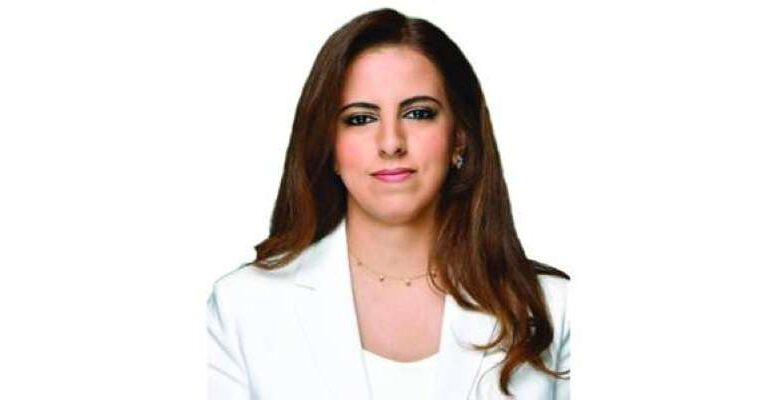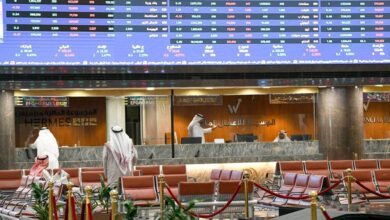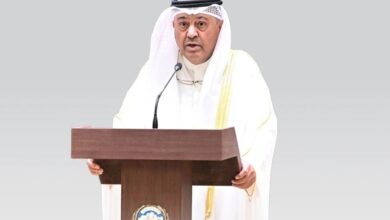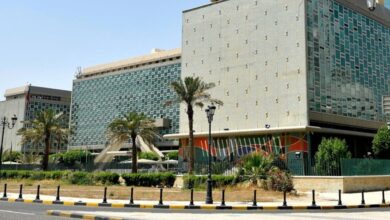Kuwait nears energy production limits, warns Munira Al-Amir
Munira Al-Amir, a member of the Municipal Council and an engineer, presented two proposals: the first aims to implement solar panels, while the second focuses on setting up regulatory mechanisms for future projects.

-
The issue of electrical energy in Kuwait, as in the whole world, has become an important and vital matter that is discussed daily on the agenda of officials at all levels
-
Kuwait, with its permanent and intense sunlight and high temperatures, aims to utilize these characteristics by generating electrical energy from renewable sources such as solar power
-
Solar technology stands out as a world-class solution for producing electrical energy in Kuwait.
Munira Al-Amir, a member of the Municipal Council and an engineer, presented two proposals concerning the establishment of a schedule within construction regulations. These proposals encompass the requirements and specifications for integrating solar panels into both government and private sites and buildings.
Additionally, they aim to develop regulatory mechanisms for future projects, with the goal of creating a clear roadmap.
In the introduction to her proposals, she elucidated Kuwait’s current situation regarding electrical energy, emphasizing the urgent need to enhance the country’s energy production capabilities to facilitate its developmental trajectory. She stressed the importance of providing the necessary resources to meet this demand, expressing her concern about statements made by officials and reports issued periodically on this matter.
She said, “The issue of electrical energy in Kuwait, as in the whole world, has become an important and vital matter that is discussed daily on the agenda of officials at all levels. This concern has also spread to the street through the statements that we constantly read and hear, as Kuwait is on the verge of exceeding its production capacity of electrical energy.”
She pointed out that among the proposed solutions for a country like Kuwait, which experiences permanent and strong sunlight and high temperatures, is to harness these features by producing electrical energy from a renewable source such as solar energy. This practice is already widespread globally and is even implemented in neighboring Gulf countries.
She pointed out that the United Arab Emirates, Saudi Arabia, Qatar, Jordan, and Egypt have preceded Kuwait in this field, with established plans and significant actual production. She stressed that this situation has prompted the political leadership to take action in concluding international agreements to
operate energy stations. Solar technology stands out as a world-class solution for producing electrical energy in Kuwait.
She stated that, following the global approach, Kuwait has decided to allow participation from the private sector and individuals in the production of electrical energy from solar sources, with the state also participating. Decree 57 of 2022 was issued, which includes Clause 11 allowing for approval to purchase energy from other sources according to established procedures.
She emphasized that “these data consequently compel all state agencies to expedite the facilitation of all procedures related to this matter, each according to their place and the nature of the role they play. The role and relationship of the municipal council are crucial in activating and facilitating the involvement of the private sector and individuals by organizing participation under the municipality’s umbrella.”
“With the participation of the Ministry of Electricity, Water, and Renewable Energy, a disciplined mechanism can be established, allowing everyone to benefit from this significant boost that Kuwait seeks to achieve,” she added.
She expressed hope that an important and fundamental objective would be achieved: that the regulations governing construction work in Kuwait would serve as a comprehensive guide for construction, aligning with global trends and incorporating all aspirations to promote the construction of smart, environmentally friendly buildings that are self-sufficient in energy production.
She also hoped that “there will be an optional mechanism in future government buildings to establish incentives for the adoption of energy alternatives, particularly through rooftop utilization which will undoubtedly contribute to the realization of the necessary progress.”
Three items to organize future projects
- The new schedule in the regulation organizing construction work should include the requirements and specifications for implementing solar panels in both government and private sites and buildings. Specialized sectors’ expertise, led by the Ministry of Electricity, Water, and Renewable Energy, should be sought.
- Establishing mechanisms to enable individuals and companies to obtain licenses for producing electrical energy from solar energy, in coordination with the Ministry of Electricity and all relevant authorities.
- Setting up initial standards and controls to be implemented when allocating spaces for such projects to ensure they are implemented according to a clear map consistent with the state’s structural plan
Four returns to the State
- The government oversees the organization and implementation of the service in an orderly manner, particularly due to the substantial involvement of the private sector, which necessitates meticulous supervision to guarantee tangible benefits for all stakeholders.
- Activating and implementing the Supreme Decree by the Municipal Council involves creating a tangible platform for purchasing surplus production systematically and integrating it through the activation of licensing mechanisms.
- The municipality needs to gather accurate data regarding the size, locations, and areas utilized for such projects.
- Enabling the municipality to fulfill the requirements of the structural plan and the state’s vision through a clear organizational process for the locations and requirements for establishing such units.
Three returns to the private sector, individuals and companies
- Facilitating private sector investment in energy production.
- Encouraging the private sector to participate by providing data and procedures to implement and license its energy production projects, making it easier for them to decide to participate.
- Owners of investment or residential buildings will be able to cover expenses for at least 15 years while recovering the cost of constructing the units in less than 3 to 5 years. In other words, they will enjoy free electrical energy provision for over 10 years.















